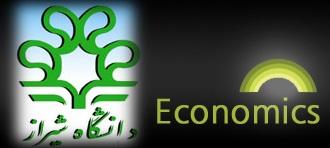Overview
One of the enduring questions of economics is "Where do profits come from?" One of the ways in which economic philosophers have tried to answer it is by first answering the question of value. At the center of most economic paradigms is a Theory of Value. The classical political economists found value to be determined in production; since most of the cost of production could be reduced to labor, this approach was refined into the Labor Theory of Value. Neoclassical economists looked for value in the market act of exchange and developed the Marginal Theory of Value. Both of these theories are currently under challenge by the post-Keynesians with their Sraffian Theory of Value [1: Note], which, like the labor theory of value, is based on production rather than exchange. Any theory of value in economics is an extremely abstract formulation: in fact, value theory is the major intersection between economics and philosophy. In other words, this chapter is not easy reading. [2: Note]
But it is essential reading. Theories of value are at the heart of two of the major themes identified in Chapter 1: the distribution of wealth and income and the maintenance of microeconomic order. If we were all self-sufficient in our material lives there would be no problem of economic value. I would produce and consume what I value and you would produce and consume what you value. But most of what each of us produces is consumed by others and most of what each of us consumes is produced by others. So


